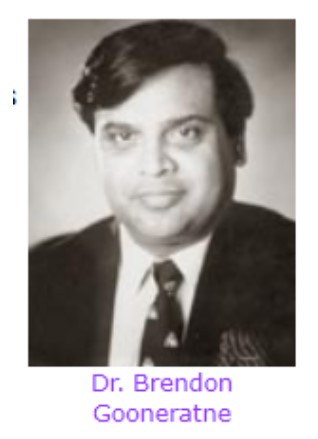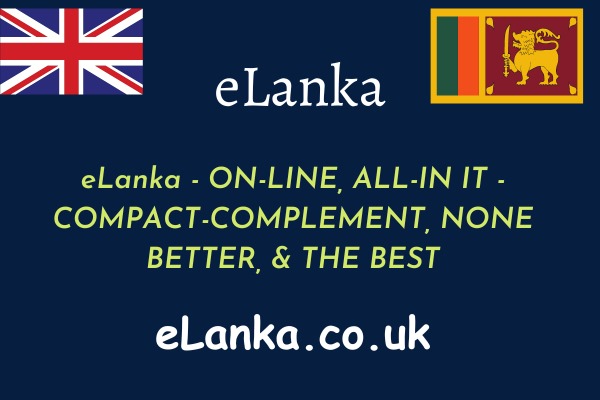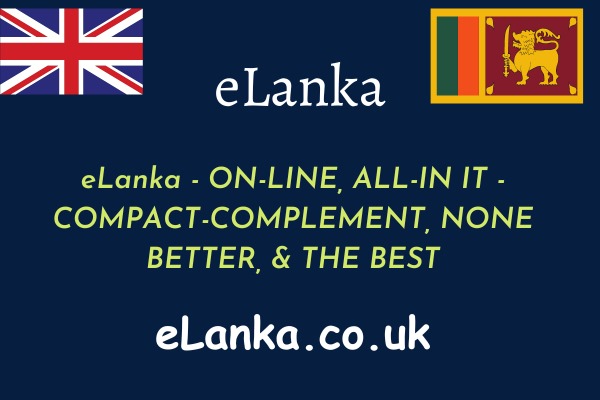
Image source:Observer
Article Source:Sundaytimes
My Father, Brendon Gooneratne, passed away last Monday. He had had a fall, on June 12th, and was recovering in a hospital close to home, with excellent care and medical attention. We have been upcountry for 18 months, due to the ongoing pandemic situation. Unvaccinated as yet, we felt my parents would be safest out of the population density and congestion of Colombo. Since March 2020, our family has had a wonderful experience of lockdown, with the news on the television or via the internet being the only intrusion. I had not spent so much time with the family for years, due to work commitments in Australia and here in Sri Lanka. It was fabulous: sitting on the verandah in the mornings and evenings, growing my herb garden so that the pasta sauces he loved would have fresh basil and oregano in them, sourcing home baked bread rolls from Colombo to have with our soup, chatting about books we loved, taking out board games, watching old movies, listening to music from the 1950s, remembering past travels, discussing the crazed antics of Donald Trump, sighting Lotan sun birds in the garden via the iridescent flash of their wings.
These days have been blessed. Radiant sunrises and soft twilights and dusks. The year turning towards summer. At the start of lockdown, I was missing travelling and the adventures of traversing physical landscapes in the world. Now I have set them aside, to a point somewhere in the future. Human beings are adaptable and resilient. That’s why we have survived so well, as a species. Thaththi recovered well from the surgery, and we were looking forward to him coming home to us. Unfortunately, an infection developed in his lungs late last week, and quickly spread systemically, so fast that it could not be stopped. On Father’s Day, we saw him in life for the last time. We spoke to him, said everything we wanted to say, and held his hands. In some countries, that has not been possible for other families. I’m so sorry for those people. As I write this, I am filled with hundreds of memories, flashing bright, which we experienced as a family over the years. So many shared holidays, so many challenges faced, and problems solved. Advice given, and taken. Life plans created – and debated – and modified. We have all loved going out and about, to new horizons and new landscapes. I became sharply aware, after my brother’s untimely death in late 2019, that the members of my family have been friends all our lives, as well as blood relatives.
We have been companions and partners in each other’s life adventures. Our existence in each other’s lives has been life affirming, and life enhancing. It has made everyday life resonant, poetic and meaningful. Of course, when a life experience has been this good, you don’t want it to end. But no one is immortal. I was sharply reminded of this when I tried to ring an ambulance on Friday – before we were informed that my Father was not strong enough to travel to Colombo – and was told that all the ambulances in Colombo are currently booked in advance, due to the Covid patients needing the services urgently, and the vehicles each needing to be deep cleaned between each patient transportation. Any of us could pass away at any time. While we hear of people jumping queues and using privilege, influence and connections to gain access to tests and vaccines and treatment, we also know that each of us, including the queue jumpers, is a vulnerable human being. So it makes sense that we become aware of the fragility of our existence. No amount of privilege can offset that. So instead of being filled with dread, let us be filled with gratitude. For every day, spent with those we have loved so long. These last several days have been surreal.
Many things I believed before have been upended, and overturned. The belief of an urban dweller for example, that the city has the best available resources and facilities. Because of travel restrictions and danger of transmission of the Delta variant, the usual large funeral gatherings are not permissible to anyone. So we had a small, beautiful funeral upcountry with only the immediate family and staff present. With bright flowers from our gardens, which my Father had designed, 25 years ago. Instead of a huge, crude, vulgar, monstrous, extended social display of the kind we all hate. Because we were upcountry, there were far fewer Coronavirus cases, and the less stressed doctors at Badulla General Hospital were able to give us the support and encouragement we needed, as well as extending their excellent medical attention to my Father. The admitting doctors took 45 minutes on admittance to the hospital to explain in detail what the situation was, and the likely outcomes of all the choices that could be made. I was fully informed of the need for immediate surgery, and of the probabilities and possibilities which could result. There was some medical terminology I had to look up, but the overall picture was crystal clear. The surgery was successful, and the trajectory of my Father’s recovery was shown in his diagnostic results and consecutive scans over the next few days. I was kept updated throughout, with a constant flow of information via WhatsApp, including X-rays, data, details of medicine administered, and comparative scans.
The reasons for each decision the doctors made were shared with me. When the trajectory changed sharply, just before he passed away, I was kept informed on an hourly basis. And with daily visits, correlated with the data I was being given, I could see by Saturday that the infection which had started on Thursday evening had not responded to treatment, and had ignited a fire of inflammation within his system which was going to blaze until it destroyed everything in its path, taking his life with it. This is where the flow of incoming data was so important, as we started to accept that our hopes and beliefs were not going to be fulfilled, this time. The numbers spoke a story that could not be denied. We could try to selectively focus on the few positive aspects, as they increasingly diminished, but not for long. In order to prepare for this immense loss, we had to face the truth without any euphemism or evasion. I looked at those numbers and the texts sent by the doctors updating me on the results many times, trying to see them differently. The doctors would state what the new challenge was, and how they were intervening to remedy it. But I could see that everything they tried was getting less and less response. It takes the human mind time to adjust to the enormity of events like this. But it helps when you are dealing with medical practitioners who are not only qualified and competent, but humane and compassionate. Who understand the patients’ family’s need to be informed, to reduce the terror of the unknown terrain, to overcome paralysis of the will, to mobilize, to fight alongside the medical team for the life of those we love. I’ve thought for a year and a half that the Coronavirus and its consequences is attacking not only individual immune systems but whole states and countries, and exposing the underlying frailties within them: the imbalances, the inequities, the vulnerable people who need support.
This is not a Covid story. My Father tested negative both at entry and departure from the hospital. But when put to the bigger test, of incoming challenges, amidst a pandemic, the medical staff won through, fighting to the end, and doing their best, in a way that filled us with admiration and respect. My Father, who had been a doctor himself, trained in this country, would have known he was being given the best of care, treated with dignity and respect, and insight and compassion, to the end. In my Father’s memory, our family will be donating to this public hospital, the only one in Uva Province with the resources to help him, and we will seek to support other local healthcare facilities also, in the regional area around where we live. These skilled personnel in the public system need to be supported, to save more people’s lives. Their skill is great, and in my opinion cannot be bettered, but their resources, equipment and infrastructure must be supplemented. I would urge those reading this article to donate to the hospitals in their local area, and invest in their local community. The medical staff you support now, close to home, will be the ones who you turn to when you or your family need urgent admittance at the OPD or ETU.
My advice to us all is to bloom where we are planted. Stay close to home. Love those who have loved us all our lives.
This is the best adventure of all.
Devika Gooneratne






